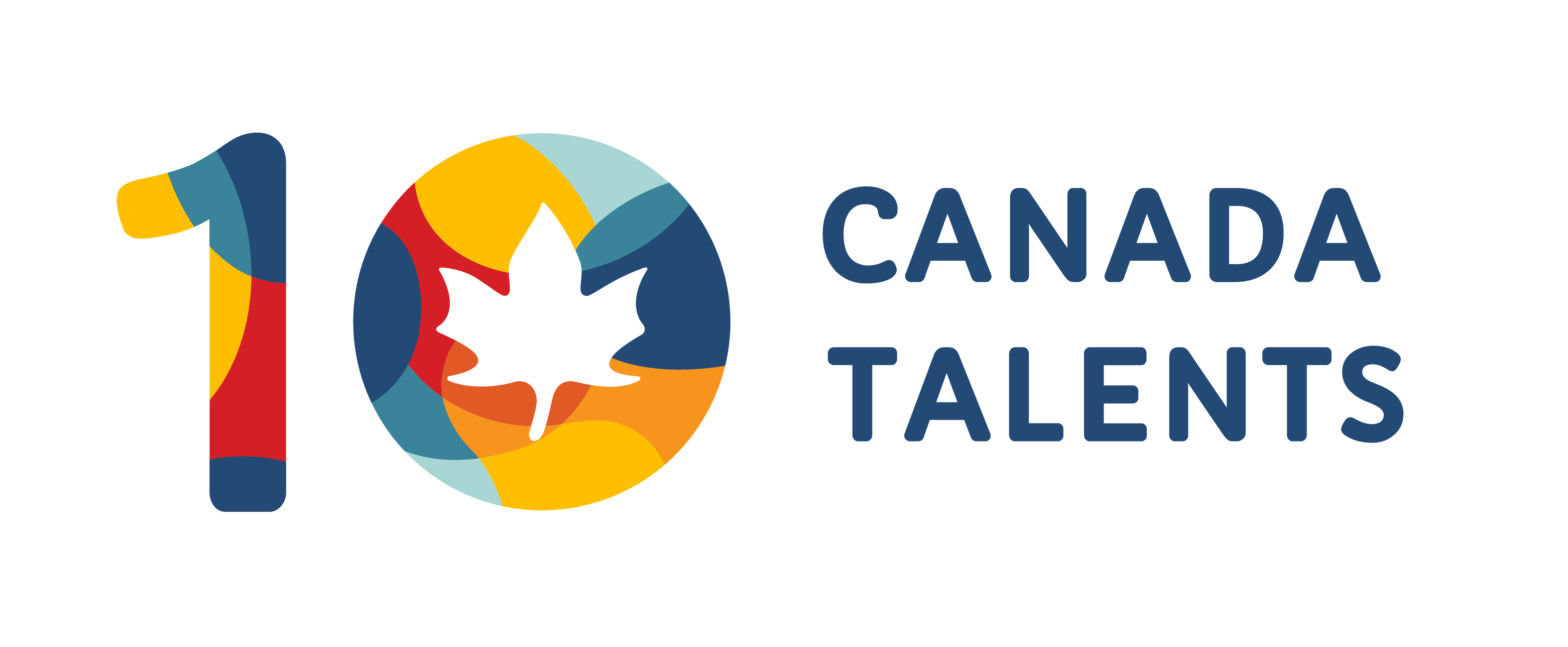When you tell someone you're moving to Canada, their first question is usually "Where?" And that's no accident. Canada isn't just big—it's the world's second-largest country, spanning 5,500 kilometres from East to West. More importantly, it's the only nation bordered by three oceans: the Pacific, Atlantic, and Arctic. This unique geography doesn't just define the map; it fundamentally shapes workplace cultures, career opportunities, and professional expectations nationwide.
For skilled immigrants, understanding these regional differences isn't just interesting trivia—it's essential career intelligence that can influence where you settle, how you network, and what professional norms you'll encounter.
The Three-Ocean Reality: More Than Just Coastline
Canada's tri-coastal position creates distinct regional economies that feel almost like different countries. Each coast has its own economic personality, and recognizing these differences helps you align your career strategy with regional strengths.
The Pacific coast, anchored by Vancouver and Victoria, looks westward toward Asia-Pacific markets. If you're in tech, film production, natural resources, or international trade with Asia, this is where those industries concentrate. Vancouver's workplace culture reflects this Pacific Rim connection—you'll find more early morning meetings to sync with Asian time zones and a business culture that values the outdoor lifestyle almost as much as quarterly results. The "West Coast casual" mentality is a real phenomenon: wearing fleece vests and hiking boots to the office isn't unusual, especially in tech companies.
The Atlantic provinces—Nova Scotia, New Brunswick, Prince Edward Island, and Newfoundland and Labrador—have historically had economies tied to fishing, shipping, and natural resources, which are now diversifying into aerospace, ocean technology, and IT. Workplace relationships here tend to be more personal. In cities like Halifax or St. John's, your professional network often overlaps with your social circle. The pace feels different—less rushed than Toronto, more relationship-focused than Vancouver. Don't be surprised if business conversations start with ten minutes of genuine personal chat.
And then there's the Arctic coast—remote, resource-rich, and increasingly important as climate change opens new shipping routes and resource opportunities. While few major urban centers exist in this region, careers in northern development offer premium compensation and unique experiences for those willing to embrace remote work in challenging environments.
The Urban Powerhouses: Where Opportunity Concentrates
Despite Canada's vast size, opportunity concentrates dramatically in just a few urban centers. The Toronto-Montreal-Vancouver triangle encompasses more than one-third of Canada's population and a significantly larger share of corporate headquarters, startups, and career opportunities in professional services.
Toronto functions as Canada's financial and corporate capital. The Big Five banks, major consulting firms, and the Toronto Stock Exchange create a workplace culture that's fast-paced, results-oriented, and more formal than other Canadian cities. If you're in finance, accounting, marketing, or corporate law, Toronto offers the deepest job market. The city's diversity—over half its residents were born outside Canada—means workplace norms have evolved to be relatively internationally minded, though you'll still need to navigate Canadian communication styles.
Montreal brings a unique bilingual dimension. While many international companies operate in English, French proficiency opens doors that remain closed to English-only professionals. The city's lower cost of living, compared to Toronto or Vancouver, makes it attractive; however, language requirements can be a barrier in specific sectors, especially in government-related work.
Calgary's identity is inextricably linked to energy. The oil and gas industry's boom-and-bust cycles create a workplace culture that's entrepreneurial and risk-tolerant but also vulnerable to commodity price swings. The optimism here is infectious during good times, but the market volatility means you need financial resilience. Calgary professionals often maintain networks in other cities as a form of career insurance.
The Distance Mindset: How Space Shapes Communication
Here's something that surprises many newcomers: Canada is geographically larger than the entire European Union. The distance between Vancouver and Halifax is greater than the distance between London and Baghdad. This vastness fundamentally affects how Canadians work and communicate. Remote work was already normalized in Canada long before the pandemic, simply because teams often span multiple provinces and time zones. A Toronto-based company with offices in Vancouver quickly learns that scheduling meetings requires time zone math. This geographic spread has created a workplace culture that values asynchronous communication, clear written documentation, and independence.
The distance also affects the development of professional relationships. In smaller countries, face-to-face networking may be the standard, but in Canada, building relationships across provinces often occurs through conferences, LinkedIn, and industry associations. Don't underestimate virtual networking—it's usually how opportunities surface, especially if you're open to relocating.
Climate as a Career Factor: The Weather Reality
Let's address what every immigrant wonders about: yes, it's cold. However, more importantly for your career, the weather has a direct impact on workplace norms and expectations. In cities with harsh winters, such as Winnipeg, Calgary, or Montreal, winter remote work isn't a perk—it's sometimes a necessity. Snowstorms can shut down transportation, and many companies build flexibility into their policies accordingly. Recognizing that the weather can significantly impact your commute is a common understanding in Canadian workplace culture.
The winter also influences business cycles in surprising ways. Construction and outdoor sectors have slowed dramatically. Tourism shifts from summer outdoor adventures to winter sports. Retail builds toward a crucial November-December season. If you're in a seasonal industry, cash flow planning and contract work become essential skills to master. Conversely, summer in Canada is sacred. The country transforms from a frozen landscape to a vibrant one in a matter of weeks. July and August see reduced business activity as Canadians take vacation time—often two or three consecutive weeks, which surprises immigrants from countries with shorter vacation norms. Plan your job search timing accordingly; hiring usually slows in summer and around the December holidays.
The Canadian emphasis on outdoor recreation isn't just cultural—it's a survival strategy. After months of winter darkness, people embrace hiking, cycling, camping, and lake culture with intense enthusiasm. This affects workplace culture significantly. Being "outdoorsy" becomes networking currency. Company events often involve activities such as hiking, skiing, or camping. You don't need to become an extreme athlete, but appreciating outdoor culture helps you connect with colleagues.
Urban vs. Rural: The Opportunity Divide
Canada's resource-based economy creates interesting career opportunities beyond major cities, but these come with tradeoffs. Mining, forestry, oil and gas, and agriculture drive economies in smaller communities, often offering higher salaries but fewer amenities and less diversity.
Many skilled immigrants naturally gravitate toward Toronto, Vancouver, or Montreal, where larger ethnic communities, diverse food options, and urban amenities feel more familiar and comfortable. But exploring opportunities in mid-sized cities—places like Saskatoon, Regina, Moncton, or Thunder Bay—can offer faster routes to career advancement, homeownership, and permanent residency through provincial nominee programs.
The key is understanding what you're trading. Smaller communities often offer tight-knit professional networks where relationships matter more than in larger cities, but specialized career pivots become more challenging without a robust job market. If you're established in your field and value affordability and community, mid-sized cities can be excellent choices. If you're still building your career or work in a niche field, major urban centers provide more opportunities.
Regional Workplace Cultures: Reading the Room
Geography shapes more than just job availability—it influences communication styles and workplace expectations in subtle but significant ways.
Western Canada, particularly Alberta and BC, tends toward a more direct, informal communication style. Hierarchies feel flatter. Calling senior leaders by first names is standard. The culture values individual initiative and encourages open communication.
Workplaces in Ontario and Quebec, especially those in established corporations, tend to be more formal and hierarchical. Titles matter more. Meetings follow stricter protocols. Toronto's corporate culture, in particular, can feel similar to American business norms—faster-paced and more results-driven than in other Canadian regions.
The Atlantic provinces bring a relationship-first approach. People want to know who you are before they do business with you. This can feel slow initially, but once you're "in," the loyalty and support are strong. Business networks are smaller and more interconnected, which means reputation matters significantly.
Making Geography Work for Your Career
Understanding Canadian geography isn't just about picking a place on a map—it's about strategic career planning. Research which cities lead in your industry. Consider how climate affects your sector's business cycles. Think about whether you thrive in tight-knit communities or prefer big-city anonymity.
Your settlement decision significantly impacts your career trajectory, more so in smaller countries, where relocating is easier. Choose wisely, but don't feel locked in. Canadians move for opportunity, and interprovincial migration is common. Many successful immigrants begin in one city to establish themselves, then relocate once they have a better understanding of the landscape.
Canada's geography creates complexity, but it also creates opportunity. Three coasts mean three distinct economic spheres. Vast distances mean remote work is normalized. Regional differences mean you can find the workplace culture that fits your style. The key is approaching Canada not as a single destination but as a diverse landscape of distinct regional opportunities—from coast to coast to coast. Ready for your life here in Canada? We at Canada Talents can help you start your journey today!


